6th Summer School on Sustainable Finance
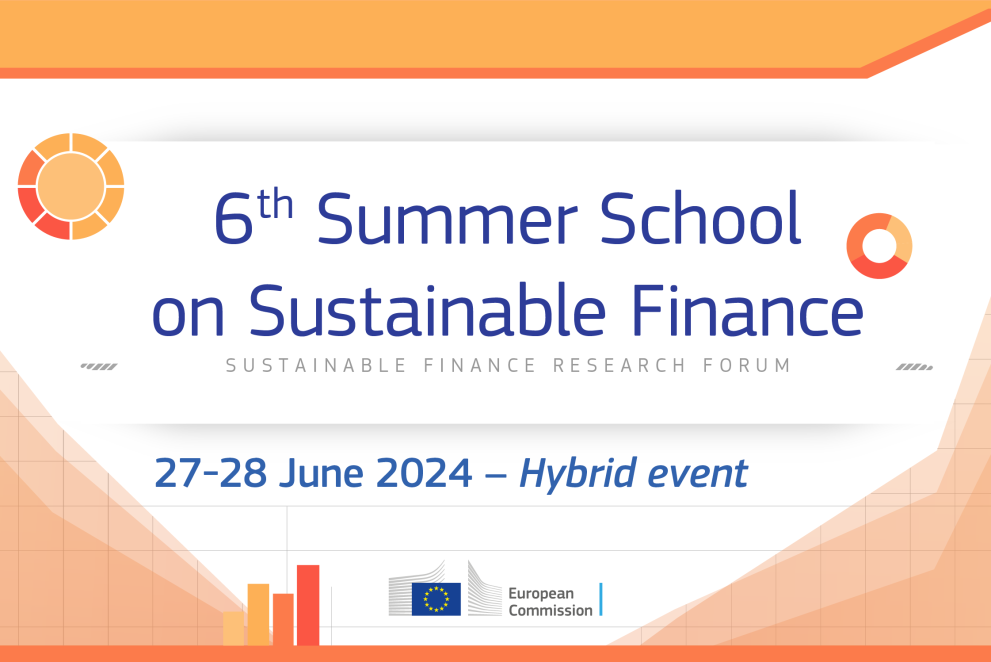
As policy actions to combat climate change gain momentum, and the analysis of climate-related financial risks matures, experts are beginning to shift their focus towards risks associated with nature more broadly, such as those stemming from environmental degradation and biodiversity loss, and the links between sustainability and digital technologies.
While continued global disruptions and geopolitical crises may become bumps in the road to a sustainable economy, digital technologies have huge potential in the context of the green transition. There are also increasing opportunities to amplify sustainable finance in emerging and developing economies, despite their limited financial resources and infrastructure. Yet, there is a pressing need for tools and analyses to evaluate relevant risks and their consequences. This includes, for example, the practical execution of stress tests that should investigate environmental risks more broadly, by taking into account value chains, macro-financial feedback loops, and secondary effects. Finally, the integration of the social and governance dimensions into mainstream financial decision-making remains notably inadequate.
To address these challenges, the 6th JRC Summer School on Sustainable Finance aims to bring together researchers, practitioners, and policymakers to discuss recent developments and innovations in the field of sustainable finance. By doing so, it exposes researchers to the most demanding issues faced by the industry and helps them produce policy-relevant research. At the same time, it provides independent scientific advice to policy, reaffirming the crucial role of research in informing policymaking.
5th Summer School on Sustainable Finance
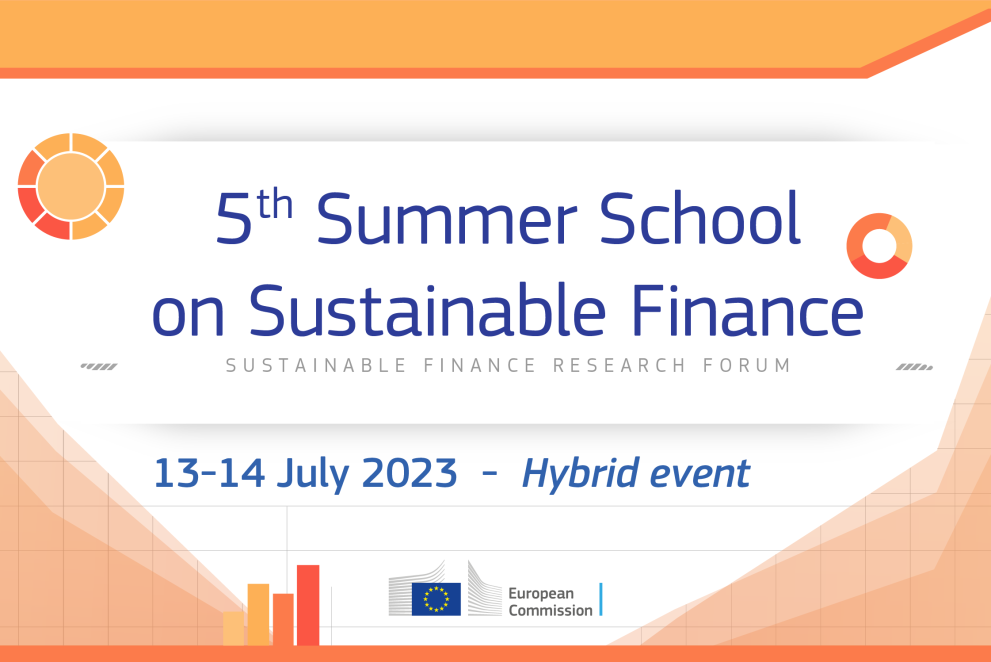
As climate change concerns grow, policymakers are acting faster. However, experts believe we're still unprepared for the most significant risks, like natural disasters and extreme weather.
These challenges can either hinder or speed up the critical Green transition. Geopolitical crises and energy supply issues present both obstacles and opportunities for a sustainable economy. Additionally, digital technologies open new doors for sustainable finance. Emerging and developing economies can also benefit from increased sustainable financing, even with limited resources and infrastructure. Furthermore, there is an urgent need for tools to assess risks and their impacts.
The 5th JRC Summer School on Sustainable Finance united researchers, practitioners, and policymakers to explore the latest advances in the field. This event has allowed all stakeholders to address industry challenges and create policy-relevant research. Simultaneously, it has also offered independent scientific advice for policy, emphasizing the importance of research in guiding policy decisions.
Should you wish to receive information on the next edition of the JRC Summer School on Sustainable Finance, please contact us atJRC-FINANCE ec [dot] europa [dot] eu ( JRC-FINANCE[at]ec[dot]europa[dot]eu)
ec [dot] europa [dot] eu ( JRC-FINANCE[at]ec[dot]europa[dot]eu)
4th Summer School on Sustainable Finance
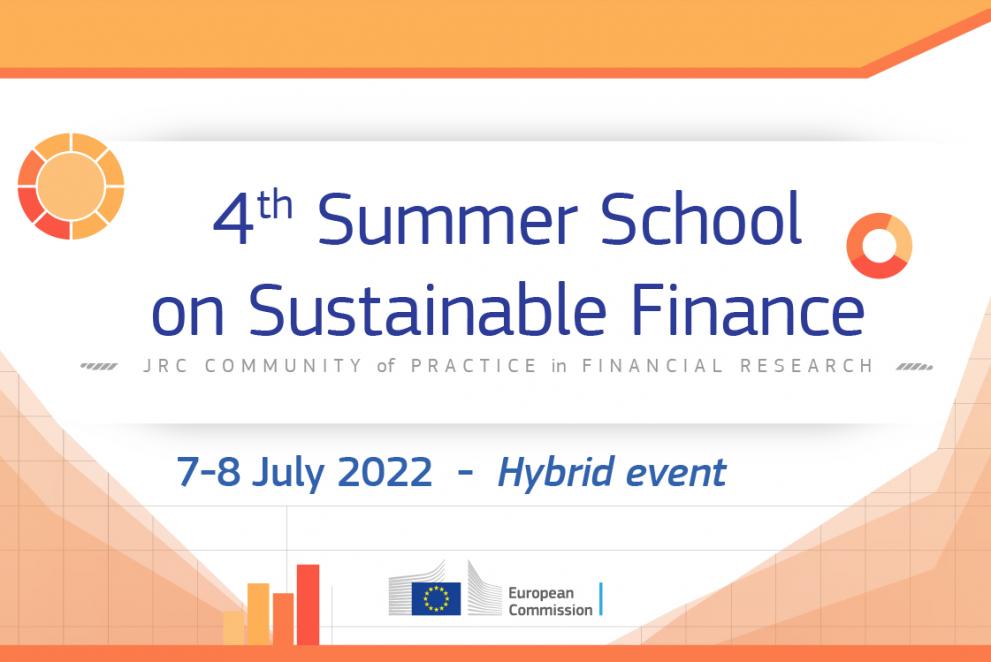
Urgent action is needed to combat climate change and environmental degradation. Europe is committed to becoming the first climate-neutral continent by 2050, building on previous policy efforts.
Despite progress, challenges remain, such as improving sustainability disclosures, reversing biodiversity loss, and understanding related risks. Success requires collaboration among stakeholders, financial market participants, and strong scientific evidence.
3rd Summer School on Sustainable Finance
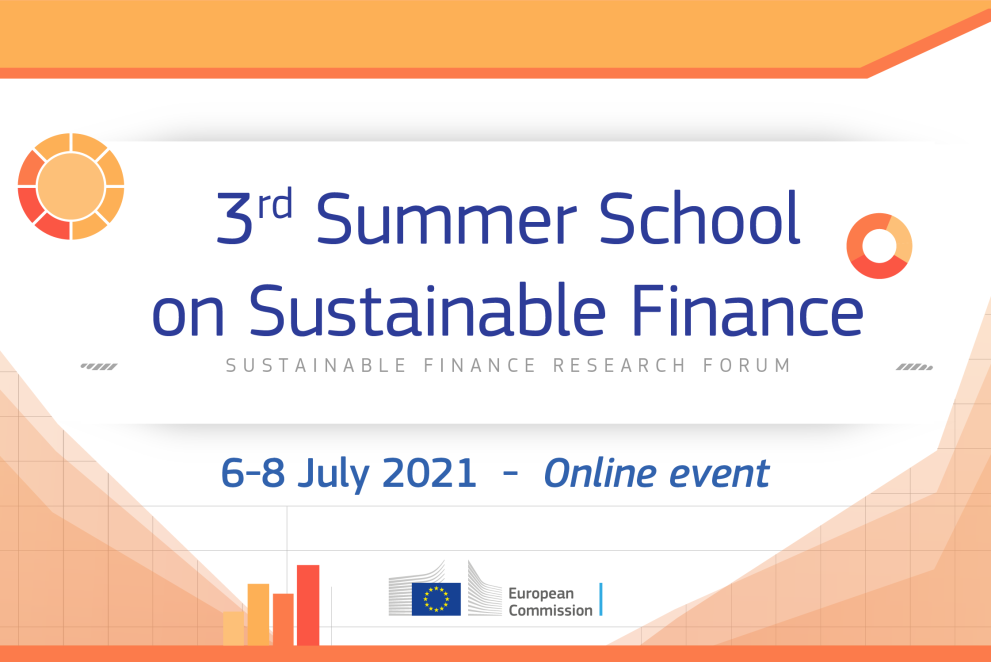
As COVID-19's impact lingers, addressing social issues becomes crucial. Immediate action against climate change and environmental degradation is essential for a sustainable recovery. Europe leads the way, focusing on a Just Transition and financing the European Green Deal as part of its recovery plan.
The Sustainable Finance Strategy offers a roadmap to boost private investment in sustainable projects. Success depends on stakeholder engagement, financial market participants, and strong scientific evidence.
Presentations & Contributions - Day 1

Presentations & Contributions - Day 2

Presentations & Contributions - Day 3

2nd Summer School on Sustainable Finance
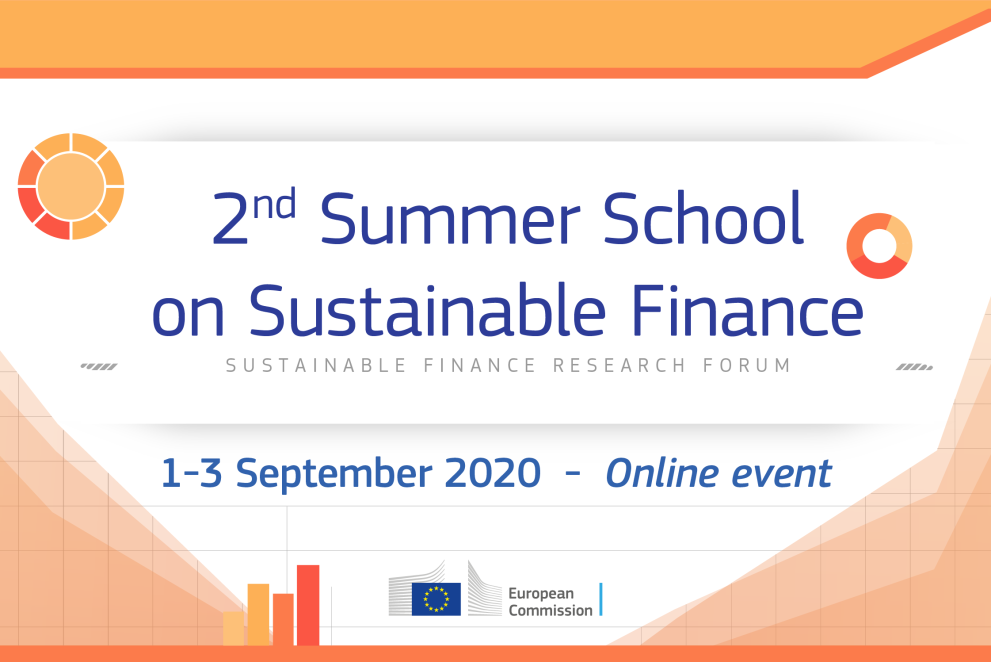
Policymakers need to react to the challenge posed by the COVID-19 pandemic.The challenge should not overshadow the goals of a more sustainable economy and society.
This 2nd summer school intends to help policymakers in creating stimulus packages, which also help to achieve climate and other environmental and societal policy goals.
To this end, we promote the development of policy-relevant research and science-based policies.
Presentations

Presentations from the 2nd summer school on sustainable finance
1st Summer School on Sustainable Finance
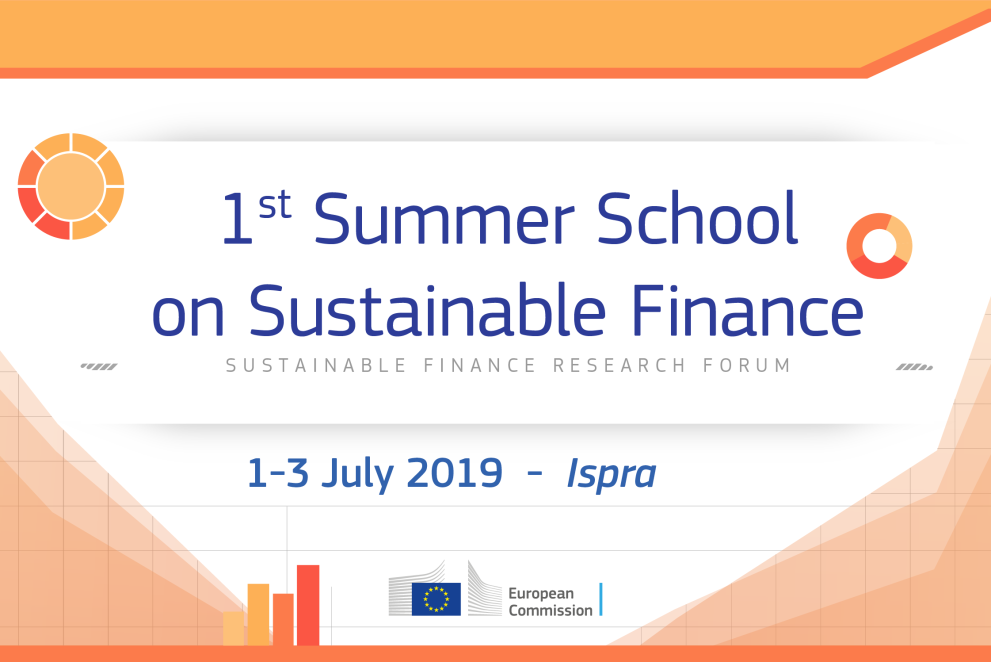
The Paris Agreement on climate change and the UN 2030 Agenda for Sustainable Development mark historical international commitments to a more sustainable economy and society.
In this context, the financial system has a key role to play.
While policy initiatives on sustainable finance are advancing at the European level, there is a strong need for sharing knowledge and experience on substantive sustainable finance issues.
To answer this need, the European Commission's Joint Research Centre (JRC) and the Sustainable Finance Research Forum have organised the summer school on sustainable finance.
List of presentations and papers

Summer School on Sustainable Finance (July 2019) - list of presentations and papers
Presentations and papers Day 1
PhD-Student / Post-Doc / Junior Academic Session 1
Paper - Emirhan Ilhan - Institutional investors’ views and preferences on climate risk disclosure
Academic Keynote 1: Climate Finance
Presentation - Zacharias Sautner
Parallel Sessions
- Professionals Only Workshop 1: Digitization of ESG information and its analytics
- PhD-Student / Post-Doc / Junior Academic Session 2

Presentation - Colin Tissen - Legal origins and institutional investors' support for corporate - summer school sustainable finance - July 2019

Paper - Colin Tissen - Legal origins and institutional investors' support for corporate - summer school sustainable finance - July 2019
Presentation - Valentin Jouvenot - Does water management improve corporate value?
Paper - Valentin Jouvenot - Does water management improve corporate value?
Presentation - Joao Estevao - Does water management improve corporate value?
Paper - Joao Estevao - Does water management improve corporate value?
Presentations Day 2
Parallel Sessions
- Professionals Only Workshop 3: Shifting to an investment strategy that mitigates climate change risks: practical considerations
- PhD-Student / Post-Doc / Junior Academic Session 3
Presentation - Benjamin Hübel - ESG and corporate credit spreads
Paper- Benjamin Hübel - ESG and corporate credit spreads
- Plenary Lecture 1: An approach to climate financial risk assessment under uncertainty
Presentation – Irene Monasterolo - plenary lecture
- Academic Keynote 2: Leveraging blockchain and distributed ledger technologies for a sustainable economy and society
Presentations Day 3
Parallel Sessions
- Professionals Only Workshop 4: Pricing climate risks and opportunities in investors' portfolios
Presentation – Irene Monasterolo - PoW4
- PhD student / Post-Doc / Junior Academic Session 4
Presentation - Dejan Glavas - Green regulation and stock price reaction to green bond issuance
Presentation - Julia Kapraun - Green regulation and stock price reaction to green bond issuance
Paper - Julia Kapraun - Green regulation and stock price reaction to green bond issuance
- Academic keynote 3: Building social capital and trust: the role of corporate social responsibility
- Plenary Lecture 3: Sustainable finance and Africapitalism – the meeting point

Presentation - Kenneth Ameshi - Sustainable finance and Africapitalism - the meeting-point - summer school sustainable finance - July 2019
- Professional keynote: Green taxonomy
Closing Panel and Open Debate
Presentation – Jan De Spiegeleer
Presentation – Massimo Maraziti


